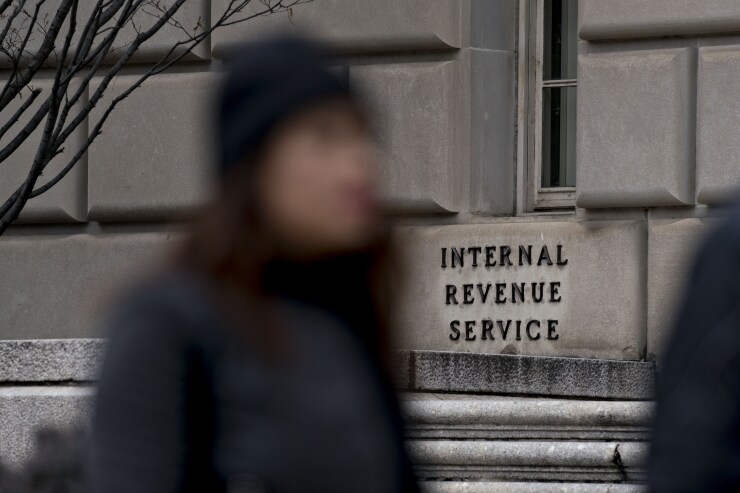The Internal Revenue Service needs to do a better job of keeping track of employees who are arrested by law enforcement and notifying their colleagues, according to a new report.
The
"A post-appointment issue that is not identified and addressed or not addressed timely or consistently could lead to irreparable harm to the IRS's mission and reputation as well as heighten the risk of insider threats," said the report.

For post-appointment arrest cases closed between fiscal years 2019 and 2021, TIGTA found that the disciplinary actions taken were mostly within the IRS's recommended guidelines, but they did take a long time to complete. The IRS took an average of 448 calendar days to close its post-appointment arrest cases, mainly because the IRS doesn't have specific timeliness guidelines for the overall post-appointment arrest process.
For the adjudication part of the process, the IRS's internal guidance directs its Labor/Employee Relations and Negotiations Field Operations unit to close its cases as soon as possible, with up to 180 calendar days for closure, unless there are extenuating circumstances. While that unit averaged only 133 days to close the adjudicated cases, TIGTA found that 42 of the 209 cases reviewed, or about 20%, exceeded the 180-day case closure time frame. Some cases required over two years to resolve.
TIGTA also found that due to a lack of internal controls, the IRS's system used to track post-appointment arrest cases contained duplicate records and records for non-IRS employees. Duplicate records and cases involving non-IRS employees also complicated the mix. The system contained 119 duplicate records out of the total 925 records, or 13%, entered between fiscal years 2019 and 2021. The IRS also didn't remove 1,278 of the 1,940 post-appointment arrest records (that is, 66%) closed between fiscal years 2019 and 2021 that involved non–IRS employees from its tracking records.
TIGTA recommended that the IRS's human capital officer develop overall timeliness goals to promote efficient processing of post-appointment arrest cases from initiation to final adjudication. The office should also establish a quality review process to measure the Ethics and Investigations Support Branch's success in achieving post-appointment arrest case processing timeliness goals, including the routine review of cases exceeding established timeliness goals to determine the cause of any delays. The report also suggested the IRS should modify its case-tracking procedures to allow the EIS Branch to eliminate the creation of duplicate cases and remove non-IRS employees from the system used to track post-appointment arrest cases.
The IRS agreed with TIGTA's recommendations and has developed timeliness goals to promote efficient processing of post-appointment arrest cases> The agency has also established a quality review process to measure success in achieving post-appointment arrest case processing timeliness goals, and transitioned from tracking cases in the e-Trak system to eliminate the creation of duplicate cases and to remove non-IRS employees from the IRS systems when tracking post-appointment arrest cases.
"The IRS is fully committed to ensuring that its employees abide by the agency's ethical standards and will continue to impose corrective actions, as appropriate for violations of those standards," wrote IRS human capital officer Traci DiMartini in response to the report.





